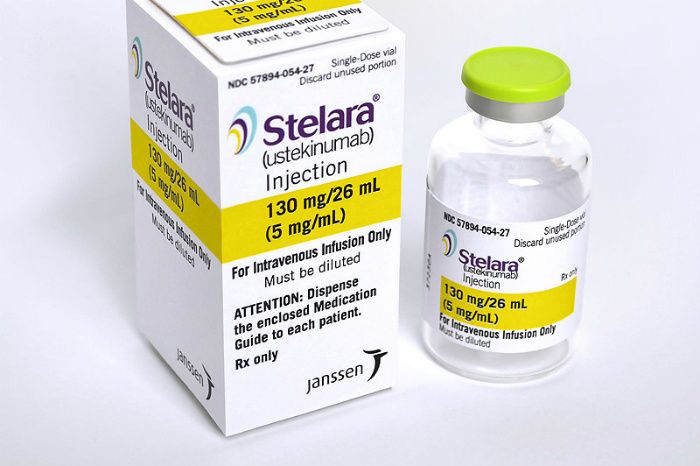- Bone Health
- Immunology
- Hematology
- Respiratory
- Dermatology
- Diabetes
- Gastroenterology
- Neurology
- Oncology
- Ophthalmology
- Rare Disease
- Rheumatology
FDA Approves First Stelara Biosimilar, Wezlana
The FDA approved Amgen’s Wezlana (ustekinumab-auub) as the first biosimilar to reference Stelara (ustekinumab). The biosimilar was also approved with an interchangeability designation.
Stelara is an interleukin-12 and interleukin-23 antagonist used for the treatment of plaque psoriasis, psoriatic arthritis, Crohn disease, and ulcerative colitis. The originator product is available in intravenous and subcutaneous formulations.

The FDA approved Wezlana (ustekinumab-auub), making it the first approval for a biosimilar referencing blockbuster drug Stelara (ustekinumab). The agency also granted Wezlana an interchangeability designation.
Wezlana was developed by Amgen and will be used to treat:
- Adult and pediatric patients with moderate to severe plaque psoriasis who are candidates for phototherapy or systemic therapy
- Adult and pediatric patients with active psoriatic arthritis
- Adults with moderately to severely active Crohn disease
- Adults with moderately to severely active ulcerative colitis
The approval for Wezlana was based on a data from a phase 3 trial that confirmed the biosimilar, then dubbed ABP 654, as having comparable safety and efficacy profiles to the reference product.
The study was a multicenter, randomized, double-blinded, comparative clinical trial, and it met the primary efficacy endpoint, indicating that the biosimilar had no clinically meaningful differences compared to Stelara. The analysis evaluated the change in percentage of the psoriasis area severity index in adult patients with moderate to severe plaque psoriasis over 12 weeks. In total, 563 patients were randomized to receive either the biosimilar (n = 281) or the reference product (n = 282).
The interchangeability designation will allow for Wezlana to substitute for Stelara at the pharmacy level without requiring a pharmacist to get permission from a provider first. The designation is intended to increase access to the biosimilar and convenience for patients, who often have to wait long periods of time to obtain a medication because they have to wait for provider approval.
Wezlana is the seventh biosimilar overall to be deemed interchangeable, following Semglee (insulin glargine-yfgn), Cyltezo (adalimumab-adbm), Cimerli (ranibizumab-eqrn), Rezvoglar (insulin glargine-aglr), Byooviz (ranibizumab-runa), and Abrilada (adalimumab-afzb).
For a company to obtain interchangeability for a biosimilar, in most cases—excluding insulin products and products administered intravitreally—the company must conduct a switching study, in which patients are switched back and forth multiple times between the reference product and biosimilar to confirm that switching is safe and does not impact clinical outcomes.
Stelara is an interleukin-12 and interleukin-23 antagonist used for the treatment of plaque psoriasis, psoriatic arthritis, Crohn disease, and ulcerative colitis. The originator product is available in intravenous and subcutaneous formulations.
Earlier this year, Amgen settled with Johnson & Johnson (J&J), the parent company of the maker of Stelara (Janssen), to delay its projected launch date for Wezlana from late 2023 to “no later than January 1, 2025.”
According to J&J's annual financial report, US sales for Stelara reached $6.4 billion in 2022. The company said that it expects sales to drop after patent expiration and subsequent biosimilar market entrants.
An estimated 125 million people have psoriasis globally, including about 14 million in Europe and more than 7.5 million people in the United States. About 80% of people with psoriasis have plaque psoriasis.
Newsletter
Where clinical, regulatory, and economic perspectives converge—sign up for Center for Biosimilars® emails to get expert insights on emerging treatment paradigms, biosimilar policy, and real-world outcomes that shape patient care.
